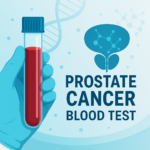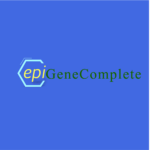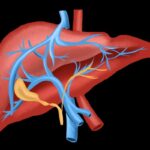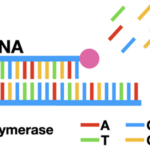Is Epigenetic Entropy and Its Role in Aging Possible to Extend Life?
Is Epigenetic Entropy and Its Role in Aging Possible to Extend Life?
Scientists have been trying for a long time to understand the mechanisms of aging and answer the question: is there a limit to lifespan or ways to extend life? Recent research in epigenetics sheds light on this mystery. It introduces a new concept called epigenetic entropy, which can elucidate the varying lifespans of organisms and the limiting factors of mammalian lifespan, including humans.
What is Epigenetic Entropy, and How Is It Related to Aging?
Epigenetics studies how external factors and changes in gene expression without altering the DNA structure itself can affect our health and lifespan. One of the key mechanisms that regulate gene expression is DNA methylation. Methylation occurs in so-called CpG islands (regions of DNA rich in cytosine and guanine), and its stable patterns are necessary for the normal functioning of the genome. However, with age, chaotic changes begin to occur in these patterns, called epigenetic noise.
Epigenetic entropy is a metric that describes the degree of chaos or disorder in DNA methylation patterns. The higher the entropy level, the more disruptions and errors in methylation, which leads to loss of cellular identity and disruption of cellular function. Thus, an increase in epigenetic entropy indicates the accumulation of errors in epigenetic information, which is one of the causes of aging and the development of age-related diseases.
Lifespan Limit and Epigenetic Entropy
Scientists have found that the rate of accumulation of epigenetic entropy has a direct relationship with the lifespan of mammals. Longer-lived species, such as the bowhead whale (whose maximum lifespan reaches 211 years), accumulate epigenetic noise much more slowly than species with a shorter lifespan, such as mice.
One recent study built a linear model of the relationship between the rate of accumulation of epigenetic entropy and the maximum lifespan of various mammals. According to this model, there is a universal limit to the lifespan of mammals, which is about 220 years. For humans, the limit, based on observations of centenarians and analysis, is approximately 122.5 years – as demonstrated in the case of the longest-living woman in history, Jeanne Calment.
This limit is explained by the fact that at a certain level of accumulation of epigenetic noise, cells lose their ability to maintain stable methylation, which leads to malfunctions in the genome and death of the organism. In theory, if we can slow the accumulation of entropy, then we can prolong the life and health of the organism.
How Can We Influence Epigenetic Entropy?
Although direct intervention in the processes of epigenetic aging is still at the stage of laboratory research, there are several ways to slow the accumulation of epigenetic noise and maintain genomic stability:
- Lifestyle and Diet Changes
- Physical activity: Regular exercise can improve health at the cellular level and help maintain proper methylation patterns. Studies show that people who lead an active lifestyle have slower epigenetic aging.
- Nutrition: Diets rich in antioxidants, polyphenols, and methyl donors (such as folate, vitamin B12, and choline) can help reduce oxidative stress and maintain stable DNA methylation.
- Mediterranean diet: This diet is especially beneficial due to its high content of fruits, vegetables, nuts, and olive oil, which helps reduce inflammation and oxidative stress.
- Pharmacological Drugs and Nutraceuticals
- Metformin: A drug used to treat diabetes, has been shown to slow aging and reduce epigenetic noise. Its mechanisms of action involve improving metabolism and lowering glucose levels, which has a beneficial effect on cellular health.
- Resveratrol: A beneficial compound that activates sirtuin proteins, which in turn affects the maintenance of genome stability and slows down aging.
- Histone inhibitors: Certain compounds that inhibit the activity of histone deacetylases (HDACs) can reduce the level of epigenetic noise, potentially slowing down aging.
- Cellular ReprogrammingUsing Yamanaka factors to return cells to a youthful state is one of the most promising techniques. Reprogramming allows you to reverse age-related changes in the epigenome and return cells to their “young” state. Although this method is still in the laboratory research stage, it has already demonstrated the ability to reduce age-related changes in the epigenetic profile of cells.
- Mental Health and Stress ManagementStress and psychological tension increase epigenetic noise and accelerate aging. Meditation, yoga, breathing exercises, and other stress reduction techniques can help stabilize epigenetic patterns and slow down aging.
- Genome Editing TechnologiesTechnologies such as CRISPR-Cas9 allow us to precisely target the epigenome and restore correct methylation patterns in specific genes. Although this method is still in its development stage, it opens up opportunities for targeted changes in the epigenetic state and correction of age-related changes.
- Improving the State of the MicrobiomeThe gut microbiome plays an important role in maintaining the health and epigenetic state of the body. The use of probiotics and proper nutrition can improve the state of the microbiome and, as a result, reduce the level of epigenetic noise.
Can We Defeat Aging?
Aging is a complex process involving many factors, and epigenetic entropy is one of the key components. The accumulation of epigenetic noise leads to loss of cellular identity and disruptions in gene expression, which ultimately limits lifespan. Slowing down this process, whether through lifestyle changes, pharmacological interventions, or advanced genome editing technologies, could open new horizons in the fight against aging.
While direct intervention in epigenetic mechanisms remains at the research stage, there are already ways to slow down the accumulation of epigenetic noise and possibly extend lifespan. If science can better understand the mechanisms of epigenetic entropy and its relationship to lifespan, in the future, we will likely be able to more effectively influence this process and achieve significant success in extending active longevity.
Recent Blog Posts
-
 13 Jun 2025MTL Epitherapeutics and RI-MUHC Develop Early Prostate Cancer Blood Test
13 Jun 2025MTL Epitherapeutics and RI-MUHC Develop Early Prostate Cancer Blood Test -
 11 Jan 2025EpiAge Research Publication Signals a New Era in Understanding Biological Aging
11 Jan 2025EpiAge Research Publication Signals a New Era in Understanding Biological Aging -
 18 Nov 2024EpiMedtech Global Announces FDA Registration of EPIAGE, the First Epigenetic Age Test Registered by the FDA
18 Nov 2024EpiMedtech Global Announces FDA Registration of EPIAGE, the First Epigenetic Age Test Registered by the FDA -
 18 Nov 2024EpiMedTech Global Validates Unique epiCervix HPV Combo Test for Cervical Cancer Detection
18 Nov 2024EpiMedTech Global Validates Unique epiCervix HPV Combo Test for Cervical Cancer Detection -
 31 Oct 2024HKG epiTherapeutics’ MetaGen Genetic Risk Assessment Test Receives FDA Registration, Now Available in the U.S.
31 Oct 2024HKG epiTherapeutics’ MetaGen Genetic Risk Assessment Test Receives FDA Registration, Now Available in the U.S. -
 31 Oct 2024EpiMedTech Global Launches epiGeneComplete: A Breakthrough Genetic and Epigenetic Test for Comprehensive Health Diagnostics
31 Oct 2024EpiMedTech Global Launches epiGeneComplete: A Breakthrough Genetic and Epigenetic Test for Comprehensive Health Diagnostics -
 30 Oct 2024Enhanced Early Detection of Liver Cancer
30 Oct 2024Enhanced Early Detection of Liver Cancer -
 08 Oct 2024Are Microarrays Still Reliable? How Next-Generation Sequencing Outperforms Traditional Methods
08 Oct 2024Are Microarrays Still Reliable? How Next-Generation Sequencing Outperforms Traditional Methods



